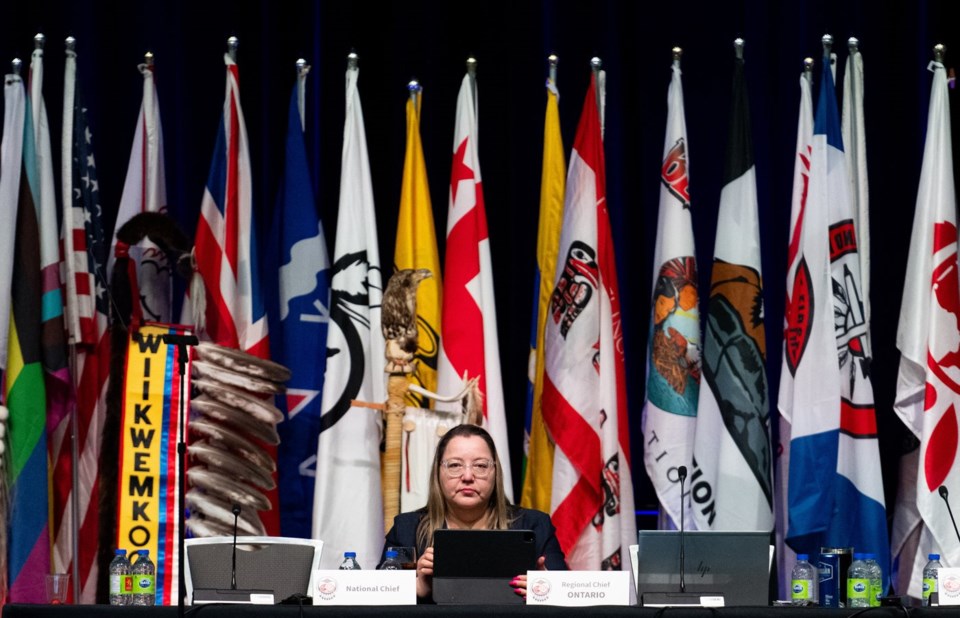OTTAWA ŌĆö The national chief of the Assembly of First Nations is calling on politicians of all stripes to support a national inquiry into systemic racism in policing and police-related deaths of First Nations people, calling it a human rights issue that requires commitment from all leaders.
"For too long, First Nations people have been subjected to colonial police violence in Canada. It's not acceptable for First Nations people, and I don't believe this is acceptable to other 91įŁ┤┤s either," Cindy Woodhouse Nepinak said with two mothers directly touched by the issue standing behind her.
A resolution passed by consensus at a special chiefs assembly Tuesday says despite 20 individual inquiries and commissions into the police and justice system since 1989, the federal government has failed to make substantive changes to address systemic racism within the RCMP and other agencies.
The resolution came after a string of incidents between Aug. 29 and Sept. 24 that left nine First Nations people dead during or after interactions with police.
"The investigations into the recent deaths of First Nations people after interacting with police are being conducted in isolation of each other, which is not drawing conclusions as one interrelated epidemic," the resolution says.
The assembly voted for one national inquiry, along with the establishment of a national crisis intervention team. It also called for the demilitarization of police forces, which would stop police officers from using military-style tactics and equipment.
Edith Wells, the mother of Jon Wells who died after interacting with police in Calgary in September, said it's an incredibly difficult issue to speak about. She said she needed to stand up and help his voice be heard.
"We need to speak up as mothers for justice for our children that have been very brutally murdered by the police," she said.
"Justice needs to be done."
A small piece of justice, they say, is the national inquiry.
"We stand here to say we've had enough of this," said Martha Martin, whose son and daughter died in 2020 after interactions with police.
"No more recommendations. It's time for action."
Martin said an inquiry would thrust the issue into the spotlight, and that it would help bring transparency for families and their children.
Woodhouse Nepinak said Tuesday she would to bring the resolution to the government as soon as she could.
In a statement Tuesday, Public Safety Minister Dominic LeBlanc's office said the RCMP is co-operating with independent police oversight bodies that are looking into the deaths.
"We recognize that recent officer-involved fatal incidents in Indigenous communities have been incredibly difficult for community members, and most of all the loved ones of the deceased. Our thoughts are with them," the statement said.
This report by The 91įŁ┤┤ Press was first published Dec. 4, 2024.
Alessia Passafiume, The 91įŁ┤┤ Press



